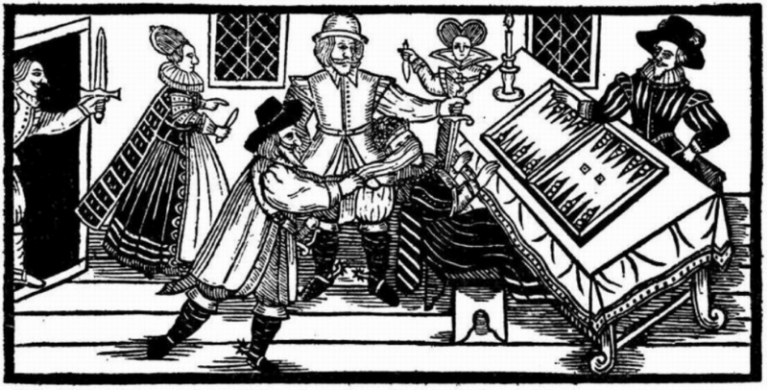Love, Liberation, and Empowerment in Godshot

There’s inherent danger in being a woman—being a girl—which is the focus of Chelsea Bieker’s debut novel Godshot, out today. Godshot tantalizes as a cult thriller, but where it cuts most is through the body horror experienced by fourteen-year-old Lacey May Herd and the other “Bible study girls,” who’ve recently become “women of blood.” You can almost always see where Lacey May’s perilous path is heading, but this never takes away from the sting—in fact, it’s part of it. The novel’s twists are in your own gut.
Godshot, set in Peaches, California, a Central Valley California town deep in drought, is a case study in the predatory and inescapable, in gender and power, in craving and emptiness. Bieker’s novel feels familiar, devastating, like it has already happened, could, or might again. It’s the story, too, of motherhood in all its iterations, from abandonment to adoption, at the best of times and worst, and the moments, no matter how small, of love.
“I wondered where the blood was coming from exactly,” Lacey May thinks just after she’s gotten her first period. “I wanted my mother to sense my question and tell me all I would need to know, really fawn over me.” So much of the relationship between Lacey and her mother, Louisa, is this push-pull—her beautiful mother getting ready, captivating Lacey, yet out of reach through a haze of alcohol, vanity, and poor judgment. Lacey describes her:
She was a day late and a dollar short, a water bottle of gin in her purse, in the glove box, a waitressing job at the Grape Tray, and one lousy boyfriend after another who sat potbellied and spread-legged in our kitchen, yellowed fingers ashing cigarettes into empty chili cans.
And me?
I was only her bastard daughter, unsaved and seven years old, daddyless and dirt-kneed, whole mind a sin plain.
The two are saved by Vern, the young, flashy preacher from Gifts of the Spirit Church (GOTS) who wins the congregation over when his arrival coincides with much-needed rain he claims responsibility for. He favors flashy capes, wears his blond hair in starched ringlets, and shaves a “Spirit Hole” on the top of his head “so that God could reach him without hair in the way.” Vern likens himself to Jesus and considers himself “God’s chosen son, just in current times.” “God in Vern,” church members, referred to as the Body, say; terrifyingly, by the end of the novel, Vern says to Lacey, “‘There’s no God apart from me, Lacey. Thinking there is is your main problem.’” Undeniably, though, Vern fills a hole in the Herds’ lives, including Lacey’s grandmother, Cherry, whose husband, Grampa Jackie, killed himself in despair over his dead fields. Salvation transforms their lives by ending the parade of lousy boyfriends and booze, and Vern can give Lacey the attention and approval she craves from a man. So when her period starts, Lacey disregards her mother’s request to keep it between them for a little while and runs to Vern.
Already, Bieker has readers squirming: this poor girl, so desperate for a father-figure, so taken in by Vern that she runs to him in the heat of the day in her mother’s white sundress clutching bloody tissue paper as evidence. The troubled flicker Lacey catches in her mother’s eye, that her mother’s drinking begins after her assignment—“a holy bargaining between you and your pastor and God Himself,” which Vern assigns—and that he forbids Louisa from dating fills us with foreboding. “I had wanted him to pull the truth from me on his own so I could remain innocent—not having betrayed my mother, and not having betrayed him,” Lacey says. “But I knew in a true faith there was no such thing as both, so I chose.” The following Sunday, Vern announces that Lacey May has been “‘anointed with her woman’s blood,’” adding that “‘[s]he’s the last of [his] expected, a true blessing. This will rocket [their] intentions to the next level.’” The church cheers, and the boys’ club—unmarried men age fourteen and older—stands and cheers louder than the rest; one boy even “let[s] out a whoop and lassoe[s] his arm in the air.” Lacey May muses, “To have a room cheer for you and only you is a strange treasure.” The cheering boys amplify the vulnerability of Lacey May’s position, and that they’re referred to as a club, rather than the more primly named Bible study girls, condones their predatory nature, which is cultivated by Vern. Their reaction belies the price Lacey will pay for choosing the church over her mother and seeking love from Vern and the Body over her mother’s inconsistency.
Lacey loses her mother emotionally here and, not long after, physically, too, when Louisa is dramatically whisked off in the middle of a service by “the Turquoise Cowboy,” who promises to make her a star. In the dramatic showdown, Louisa reveals that, by Vern, she worked for the Diviners, a phone sex service in town; Vern, saying that she has failed, banishes her from the church. Foisted upon her eccentric grandmother, who enjoys dressing up small taxidermy animals and swinging around her bull penis cane, Lacey is consumed with missing her mother despite badly wanting to be a part of the church. “My body felt like a new thing to me without her next to it,” she says. Lacey loses her mother when she most needs her as a shield from the world that is quick to prey on her changing body, which she is beginning to discover just as men are beginning to, too. “He scanned me toes to tits,” Lacey May observes of a delivery man, Stringy. Another time, a Bible study girl’s father’s eyes consume her. “‘We need you ripe and ready,’” Vern says to Lacey, just before the novel’s horrific climax. The church becomes the ultimate predator, the men out to consume nubile female bodies at their most vulnerable, and the women supporting the sacrifice of their defenseless daughters because their pastor promises rain they so desperately need to restore their town and fields. “‘Blessed land,’” Cherry says, and “[s]adness pull[s] at her face.” Lacey observes, “The land was like a person we missed.”
And then it’s time for Lacey’s assignment: her cousin Lyle, in their Grampa Jackie’s shed, says to her, “‘I think you’re ready, Lacey.’” He tells her to lie down, pinning her with his knees, and says, “‘Vern says I have a perfect holiness inside me and it’s time I give it to you.’” Then he asks, “‘Are you faithful?’” As Lyle rapes his cousin—their —Lacey thinks about what her mother said about sex hurting the first time. “Good,” she thinks. “Then this must not be sex.” Lyle rapes her five times; during the last, he tells her, “‘Vern said you’re a full-moon bleeder. . .Now we’ve done all there is to do and we’ve done it at the right time. There’s gonna be rewards beyond our wildest dreams.’” Naïve, the implication hasn’t clicked with Lacey yet, nor does it click when all the Bible study girls find themselves dry heaving outside of the church ostensibly because the smell of the Body has grown so strong; it doesn’t click when her breasts start to grow, her nipples becoming tender.
After Lyle rapes her, Lacey May runs to the Diviners’ red house, where her mother once worked, and meets Daisy and her daughter Florin, wanting to work there as a way of being close to her mother but also to be mothered by Daisy, given her mother’s absence; she’s magnetized, too, by Daisy and Florin’s relationship. Though she continues to live with Cherry, Lacey returns to the red house often, working, basking in the air conditioning, and drinking the water Vern forbids his congregation from drinking because it’s shipped in from out of town (they only drink soda). During her time spent with Daisy and Florin, they buy her a pregnancy test and later arrange for a midwife. Daisy fills the role of mother when Lacey desperately needs one, though Lacey remains conflicted between the love of these “infidels,” in the eyes of GOTS, and her devotion to the church. “I imagined. . .telling them both what Lyle had done,” Lacey May says. “But I stopped. I wouldn’t be a fool. To tell them about Lyle would only be telling them about myself.” Already, Lacey feels what some segments of our culture have worked to shake: women experiencing shame for what has been done to them. Speaking out against Lyle won’t get her anywhere because what he has done to her is sanctioned, and Daisy and Florin’s position in Peaches is too precarious to help her.
Even as she cleaves to the church, however, Lacey grows wiser and stronger. “Why did women have to suffer so?” she asks. “Why was the bringing forth of another human such painstaking work? I had only just found out about my condition but inside I was stripped bare and replaced. I was already someone who understood I was no longer myself but a vessel in service to another. I would never again know a breath that was only mine. There was sadness in that, a feeling of dread.” Fourteen, impregnated by her cousin against her will, and repeatedly told the baby is church property, not hers, Lacey’s worldview has turned. She thinks back on an unmarried woman who came to speak at her school about abstinence and her own virginity, and Lacey wonders, “How could she have made it twenty-five years without someone taking it from her?” Vern uses the euphemism “blessed,” and he tells the pregnant girls, “‘Be filled with gratitude, ladies. You’ve been Godshot.’” It might be easy here to wonder why Lacey stays, and she reflects, “I knew people on the outside of the church wouldn’t understand how I could stay instead of leave, withstand instead of run. I would say those people have never been under the hand of a bad thing so bad it can start to seem good.”
It becomes clear that she and the other Bible study girls are beside the point, only serving a function for Vern. “How easy this was for them,” Lacey observes of the boys’ club, “untarnished, while us girls stood with our pale and plumping faces, sick and wrung out, weaponless.” Lacey thinks, “These boys, my body told me, were all dangerous.” But still, she waits for more proof, “as if [her] own body wasn’t proof enough.” To keep the baby, Lacey finds herself a “husband,” Stringy, Cherry marrying them in the name of the church, and Lacey pretends he’s the father. Lacey claims the agency she’s been cultivating when she secretly works as a phone sex operator, and when Lyle tells her that he wishes she didn’t exist after she questions the church and what he’s done, she thinks, “But my body did exist and was only growing bigger. I would only keep existing more and more and more, and then when the baby came she too would exist, angering men and boys all on her own. When did this end?” Lacey claims her body despite the horror that has been wrought upon it.
Eventually, Lacey May locates her mother in Reno and convinces Daisy and Florin to take her there, but Louisa rejects them, choosing to stay with the Turquoise Cowboy and solidifying her abandonment of Lacey. Ultimately, Lacey stays with the church until she cannot escape even if she wants to—Vern holds her hostage overnight—nor can she escape from what has been done to her body. As the story’s climax unfolds, Lacey reflects on the boys’ club: “Inevitably, some would lie each night next to a future wife and that wife would have no idea what they had done, the things they had found themselves a part of.” Lacey understands that the boys will move on from the cult physically unmarked and able to hide their past behavior—the way in which they celebrated the access they were permitted to girls’ bodies, the things they did to those bodies eagerly, never pausing to consider whether their actions were ethical. Forever bound by their gender, Lacey and the other girls are barred from moving on from the cult with the same clean slate, having become “vessel[s] in service to another”—both the babies inside them and Vern. Neither a couple of the Bible study girls’ resistance nor other Bible study girls’ enthusiastic embrace of their assignment empowers or liberates them. Repeatedly told by men that her body is not hers to control—the church will do it, or else the law—Lacey, however, finds ways to liberate herself given the conditions, refusing to be made anonymous by Vern as he’d wanted for these girls. She casts off Vern’s labels of “difficult” and “female hysteria,” and in the wake of losing the attention, approval, and love from the two people she initially sought it from—Vern and her mother—Lacey forges a new way through the love of those who love unconditionally—Daisy and Florin—and uses all that has befallen her to become a person, and mother, who is steadfast in her love, who is present, and who is empowered, finally.
This piece was originally published on March 31, 2020.


